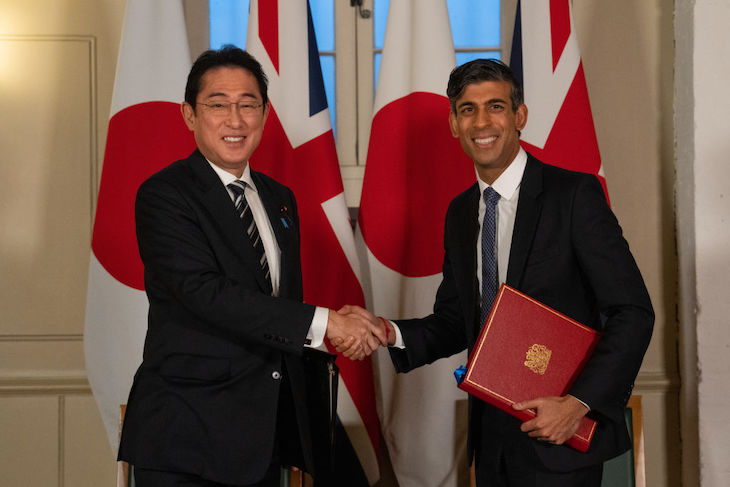It was Barack Obama who dreamed up the CPTPP, Trump pulled them out, Biden who is the Trump policy continuation candidate reckons America will not join, shame.
This op-ed by President Obama was originally printed in the Washington Post. You may view it here. President Obama: The TPP would let America, not China, lead the way on global trade May 2, By Barack Obama

ustr.gov
Cross Post: President Obama: The TPP would let America, not China, lead the way on global trade
May 03, 2016
This op-ed by President Obama was originally printed in the Washington Post. You may view it
here.
President Obama: The TPP would let America, not China, lead the way on global trade
May 2, By Barack Obama
Barack Obama is president of the United States.
Over the past six years, America’s businesses have created more than
14 million new jobs. To keep this progress going, we need to pursue every avenue of economic growth. Today, some of our greatest economic opportunities abroad are in the Asia-Pacific region, which is on its way to becoming the most populous and lucrative market on the planet. Increasing trade in this area of the world would be a boon to American businesses and American workers, and it would give us a leg up on our economic competitors, including one we hear a lot about on the campaign trail these days: China.
Of course, China’s greatest economic opportunities also lie in its own neighborhood, which is why China is not wasting any time. As we speak, China is negotiating a trade deal that would carve up some of the fastest-growing markets in the world at our expense, putting American jobs, businesses and goods at risk.
This past week, China and 15 other nations met in Australia with a goal of getting their deal, the Regional Comprehensive Economic Partnership, done before the end of this year. That trade deal won’t prevent unfair competition among government-subsidized, state-owned enterprises. It won’t protect a free and open Internet. Nor will it respect intellectual property rights in a way that ensures America’s creators, artists, filmmakers and entrepreneurs get their due. And it certainly won’t enforce high standards for our workers and our environment.
Fortunately, America has a plan of our own that meets each of these goals. As a Pacific power, the United States has pushed to develop a high-standard Trans- Pacific Partnership, a trade deal that puts American workers first and makes sure we write the rules of the road for trade in the 21st century.
This agreement strengthens America’s economy. The TPP brings together
12 countries representing nearly 40 percent of the global economy to make sure that private firms have a fair shot at competing against state-owned enterprises. It keeps the Internet open and free. It strengthens the intellectual property protections our innovators need to take risks and create. And it levels the playing field by setting the highest enforceable standards and by removing barriers to selling our goods overseas — including the
elimination of more than 18,000 taxes that other countries put on products made in America. Simply put, once the TPP is in place, American businesses will export more of what they make. And that means supporting more higher-paying jobs.
This agreement also strengthens America’s national security. When fewer people suffer in poverty, when our trading partners flourish and when we bind our economy closer to others in a strategically important region, America is both stronger and safer.
But none of this will happen if the TPP doesn’t become a reality. That’s because the Asia-Pacific region will continue its economic integration, with or without the United States. We can lead that process, or we can sit on the sidelines and watch prosperity pass us by.
If we don’t get the TPP done, American goods will continue to face high tariffs and other trade barriers in the region. American businesses will lose competitive access to Asian markets, which would mean fewer of the cars our autoworkers manufacture would make it to growing markets, more of our farmers’ and ranchers’ products would run into barriers abroad, and small-business owners hoping to sell their goods abroad would still find themselves ensnared in red tape. If we don’t get the TPP done, employers across America will lose the chance to compete with other countries’ companies on a level playing field. And when American workers and businesses compete on a level playing field, no one can beat us.
I understand the skepticism people have about trade agreements, particularly in communities where the effects of automation and globalization have hit workers and families the hardest. But building walls to isolate ourselves from the global economy would only isolate us from the incredible opportunities it provides. Instead, America should write the rules. America should call the shots. Other countries should play by the rules that America and our partners set, and not the other way around.
That’s what the TPP gives us the power to do. That’s why my administration is working closely with leaders in Congress to secure bipartisan approval for our trade agreement, mindful that the longer we wait, the harder it will be to pass the TPP. The world has changed. The rules are changing with it. The United States, not countries like China, should write them. Let’s seize this opportunity, pass the Trans-Pacific Partnership and make sure America isn’t holding the bag, but holding the pen.


